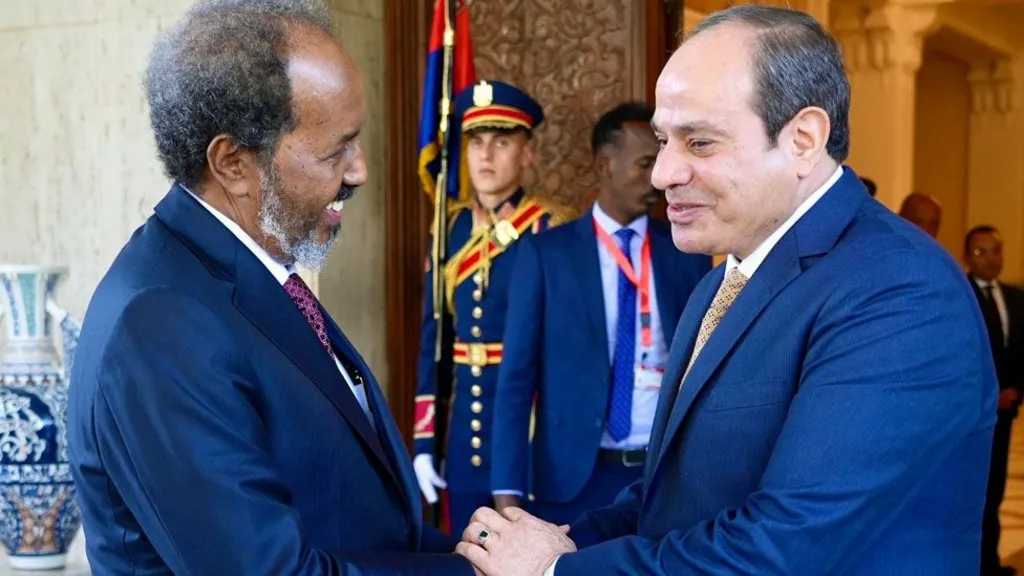In recent months, the strategic alliance between Egypt and Somalia has become a significant source of tension in the Horn of Africa, particularly for Ethiopia. This emerging partnership, marked by the recent arrival of Egyptian military aircraft in Mogadishu and the planned deployment of Egyptian troops, has intensified regional anxieties and could have far-reaching consequences.
The Roots of Conflict
The friction between Ethiopia and Somalia primarily stems from Ethiopia’s ambition to secure a coastal outlet, which was lost when Eritrea gained independence in the 1990s. To address this, Ethiopia’s Prime Minister Abiy Ahmed signed a controversial agreement with the self-declared Republic of Somaliland in January 2024, leasing a 20-kilometer stretch of coastline for 50 years to build a naval base. This move, which could also pave the way for Ethiopia to officially recognize Somaliland, has been viewed by Somalia as an act of aggression. Somalia, which considers Somaliland as part of its territory, fears this recognition might set a dangerous precedent.
Somalia’s Strategic Shift
The recent partnership between Egypt and Somalia has further inflamed tensions. The deal includes the deployment of up to 10,000 Egyptian soldiers to join a restructured African Union force and possibly establish a significant Egyptian military presence in the region. For Ethiopia, which has contributed thousands of troops to the AU mission in Somalia and invested heavily in supporting the Somali government, this move represents a direct challenge to its interests.
The Nile Dam Dispute
The backdrop to this conflict is Ethiopia’s Grand Ethiopian Renaissance Dam (GERD), a major infrastructure project on the Blue Nile River. Egypt views the dam as a critical threat to its water security, while Ethiopia sees it as essential for its development and energy needs. The dispute over the dam has been a long-standing source of tension, with Egypt accusing Ethiopia of disregarding its water rights and Ethiopia accusing Egypt of obstructing its development.
Potential Consequences
The alignment between Egypt and Somalia could destabilize the already fragile region further. The potential withdrawal of Ethiopian troops from Somalia could exacerbate the security situation, leaving Ethiopia vulnerable to jihadist attacks and regional instability. This dynamic could also impact global trade, as the Horn of Africa is a critical juncture for maritime routes through the Red Sea and the Suez Canal.
Diplomatic Efforts
Amidst these tensions, diplomatic interventions are underway. Turkey, which has ties with both Ethiopia and Somalia, is set to mediate talks, while the UAE’s investments and influence in Somaliland and Ethiopia add another layer of complexity. The next phase of diplomatic efforts will be crucial in addressing the underlying issues and mitigating the risk of further conflict.
As the situation evolves, the international community remains vigilant, aware that the outcomes of these regional dynamics could have significant implications for both local stability and global trade.


